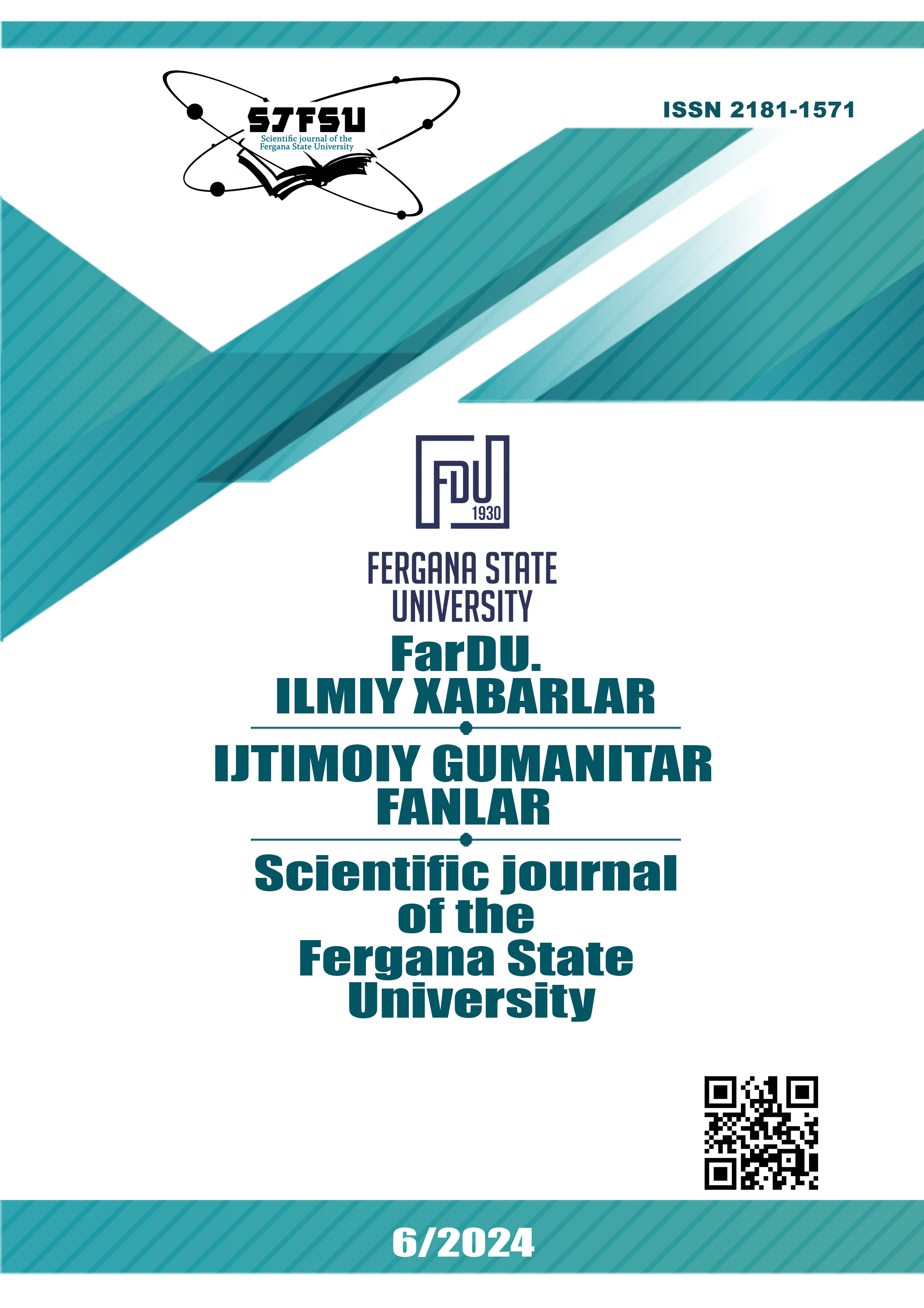PEDAGOGICAL AND PSYCHOLOGICAL OPPORTUNITIES FOR IMPROVING THE TEACHING OF EDUCATIONAL MATERIALS IN TECHNICAL UNIVERSITIES BASED ON SIMULATIVE-VARIATIVE APPROACH
Keywords:
technique and technology, imitative-variability, man-made civilization, principles of pedagogical diagnosis, imitative modeling, virtual technologies, pedagogical problems, understanding and analysis of the essence of independent education, scientific-didactic experimentsAbstract
The article discusses the creation of a simulation-variant educational environment for students of technical higher education institutions, ensuring its full compliance with international standards, as well as the current challenges in organizing independent learning in technical universities. It also explores the development of new methods for organizing independent learning and provides a number of proposals, along with methodological experiences aimed at this purpose. These issues are analyzed through pedagogical research methods. The article highlights how improving the teaching of educational materials in technical universities based on simulation-variative principles allows students to understand and analyze the essence of independent learning by studying elements that organize the structure of activities, such as motivation, goals, conditions, actions, and processes. Additionally, it is emphasized that the formation of independent learning skills in the system of educational creative preparation, particularly in acquiring deep knowledge and skills in specialized, professional, or general vocational subjects, serves as a key factor in improving pedagogical and psychological opportunities in the context of simulation-variative teaching of educational materials. The article also demonstrates the importance of improving qualification requirements in the preparation of future engineers, highlighting the need to clarify the methodological conditions for enhancing the knowledge related to improving teaching technologies based on simulation-variative principles in technical higher education institutions.
References
Obidov J.G‘. “Intellektual o‘lchash asboblari”. Darslik. Farg‘ona: “Classic” nashriyoti –2024. 26-bet.
M.R.Kadirova. The content of pedagogical disciplines aimed at continuous didactical training of university students”. Integration of Science, Education and practice. Scientific-methodical journal 2.4 (2021): 68-73 pages.
Tojiev M., Ziyomuhamedov B. Pedagogik texnologiyaning ta’lim-tarbiya jarayoniga tatbiqi va uning barkamol avlod fazilatlarini shakllantirishdagi o‘rni. Monografiya. – Toshkent: “MUMTOZ SO‘Z” nashriyoti – 2010. 114-bet.
Рахманбаэва Р.А. Упpавление интеллектуалным потенциалом вузов в уcловиях интеграции обпазования и производcтва. Автореф.диcc. д-ра эконом. наук. – Ташкент: 2012. 34 – cт.
Tojiev M, Barakaev M, Izetaeva G, Turdiboev D. Uzluksiz ta’lim tizimida o‘quv fanlarining modulli o‘qitish metodikasi va amaliyoti. Monografiya. Toshkent: Turon iqbol. 2017. 110 – bet.
Downloads
Published
Issue
Section
License
Copyright (c) 2025 Scientific journal of the Fergana State University

This work is licensed under a Creative Commons Attribution-NonCommercial-NoDerivatives 4.0 International License.

